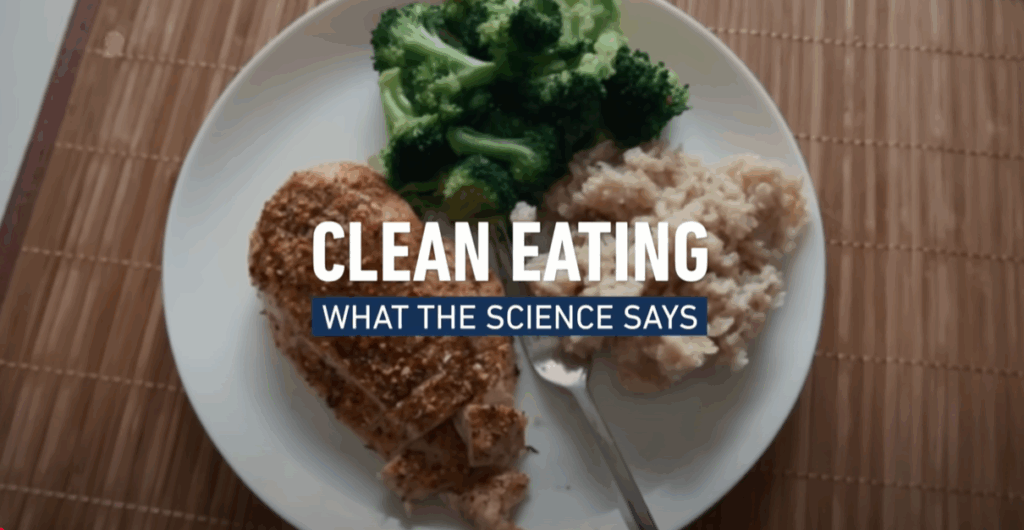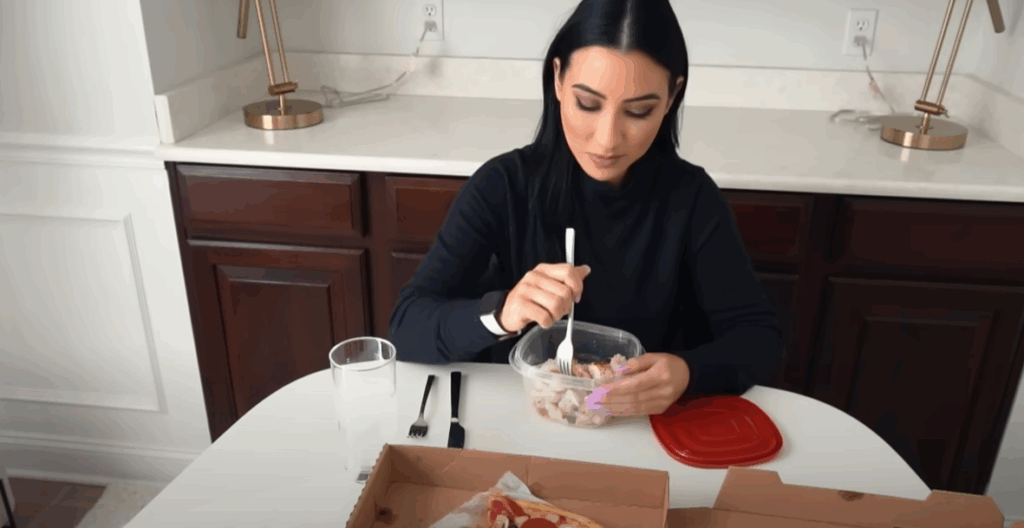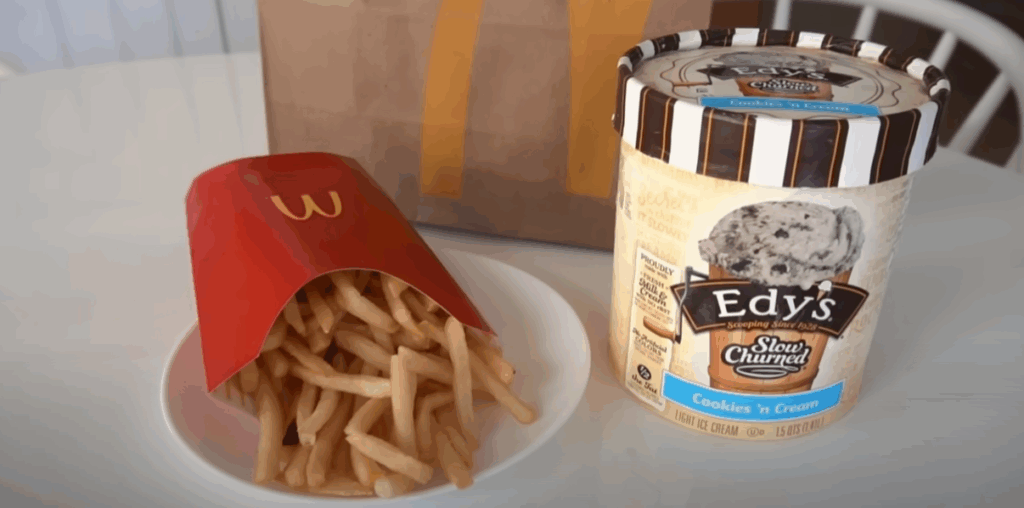The Problem With Clean Eating: Why Flexibility Beats Food Rules
In the world of fitness and nutrition, the concept of “clean eating” has become something of a gold standard. It’s praised as the ideal path toward fat loss, improved health, and even moral virtue in some circles. But while the idea sounds logical—eat “clean,” avoid “dirty” or processed foods—the reality is far more complicated. In fact, blindly following a clean eating plan may be doing more harm than good.
If clean eating works for you personally and doesn’t interfere with your lifestyle or mental health, that’s great. But for many, this dietary approach becomes restrictive, confusing, and unsustainable. Let’s break down the five major issues with clean eating—and why adopting a flexible, evidence-based approach may lead to better long-term results.

1. “Clean” Is a Vague and Arbitrary Label
One of the biggest issues with clean eating is that no one agrees on what “clean” actually means. Ask ten people and you’ll get ten different answers. A bodybuilder’s clean menu might include brown rice, chicken, and oatmeal. A Paleo follower will say grains and dairy are off-limits, while a keto dieter might lump all carbs into the “dirty” category.
Even within mainstream definitions, contradictions are everywhere. For example, sweet potatoes are often considered clean while white potatoes are not—even though both are whole, unprocessed root vegetables. Protein powder is widely accepted by clean eaters despite being a refined, processed supplement. And brown rice is praised over white rice for being less processed, even though the nutritional difference is minimal.
Without a clear definition, clean eating becomes a subjective and inconsistent framework—one based more on dietary dogma than nutritional science.
2. Clean Eating Often Leads to Unnecessary Restriction
At its core, clean eating promotes the idea that some foods are inherently good while others are bad. This black-and-white thinking can make social events, family meals, and vacations stressful. People committed to strict clean eating may feel guilty for indulging or even avoid eating out entirely.
But the science says you don’t need to be perfect to make progress. Studies have shown that eating some processed or indulgent foods within a calorie-controlled diet does not hinder fat loss or health outcomes. In fact, being flexible with your food choices has been associated with better adherence and improved results.
Ultimately, it’s the overall pattern of your eating—your calorie intake, macronutrient balance, and nutrient density—that matters most. Enjoying an occasional slice of pizza or scoop of ice cream won’t ruin your progress.

3. Clean Eating Isn’t Ideal for Sustainable Fat Loss
Clean eating may help people lose weight in the short term—but long-term success often proves elusive. Why? Because highly restrictive diets are harder to maintain.
In one study, two groups followed the same calorie-restricted plan, except one group was told to eliminate bread. Both groups lost similar amounts of weight, but the bread-free group had a much higher dropout rate. Simply put, cutting out familiar, enjoyable foods made the diet harder to stick to.
Research comparing rigid versus flexible dieting strategies shows similar results. Flexible eaters—those who don’t categorize foods as “off-limits”—tend to have lower BMIs, better psychological well-being, and more success maintaining weight loss over time.
4. It Can Foster Disordered Eating Habits
By implying that some foods are pure while others are toxic, clean eating sets the stage for an unhealthy relationship with food. Many people begin to experience anxiety around “bad” foods, leading to guilt, shame, or even binge episodes after indulging.
This mindset can evolve into orthorexia—a condition where individuals become obsessed with only eating foods they perceive as healthy. Though not yet officially recognized in the DSM-5, orthorexia is increasingly discussed in scientific literature and shares features with other eating disorders.
A 2020 study involving over 1,300 people found that those who adopted rigid food rules were significantly more likely to binge eat and suffer from body image issues. Clean eating may feel like the “safe” or disciplined approach, but in many cases, it can create more psychological harm than benefit.
5. Clean Doesn’t Automatically Mean Healthy
It’s easy to assume that a “clean” diet is automatically healthy, but that’s not always the case. You can eliminate processed foods and still fall short on essential nutrients—especially if your food variety is limited.
Research on competitive bodybuilders, many of whom follow extremely rigid clean diets, has shown deficiencies in key micronutrients like vitamin D, calcium, zinc, and magnesium. In an effort to eat “clean,” some people unintentionally cut out food groups that provide essential vitamins and minerals.
Moreover, obsessing over purity can blind people to the big picture. Eating a little bit of so-called junk food within an otherwise nutrient-rich diet isn’t inherently harmful. As with any substance, it’s the dose that makes the poison. Even water can be dangerous in excess. So a few cookies won’t derail your health goals—what matters is how much and how often you’re indulging, and what the rest of your diet looks like.

A Better Approach: Focus on Balance, Not Perfection
Instead of labeling foods as clean or dirty, it’s more productive to shift your focus toward balance and sustainability. Here’s what a more effective strategy looks like:
- Prioritize nutrient-dense foods: Load your diet with whole foods like fruits, vegetables, whole grains, lean proteins, legumes, and healthy fats. These foods provide the vitamins, minerals, and fiber your body needs.
- Don’t fear “processed” foods: Not all processed foods are created equal. Some, like canned beans or frozen vegetables, are convenient and nutritious. Others, like protein bars or Greek yogurt, can be useful tools for hitting your macros.
- Allow room for indulgences: There’s nothing wrong with enjoying dessert, fast food, or snacks occasionally—as long as they fit within your overall nutrition plan.
- Track progress, not perfection: Whether you count calories, follow intuitive eating, or use portion control, what matters is consistency and adherence. Use tools like photos, measurements, or bodyweight averages to assess your results.
- Avoid extremes: Long-term success comes from moderation, not restriction. Extreme clean eating is not required to be lean, healthy, or strong.
Final Thoughts
Clean eating might seem like a sensible path at first glance, but it’s built on an unstable foundation of vague definitions, unnecessary restriction, and moralizing food. A flexible, science-backed approach to nutrition not only works just as well—but often works better in the long run.
Rather than chasing dietary perfection, aim for consistency, variety, and balance. Your body—and your mind—will thank you for it.



